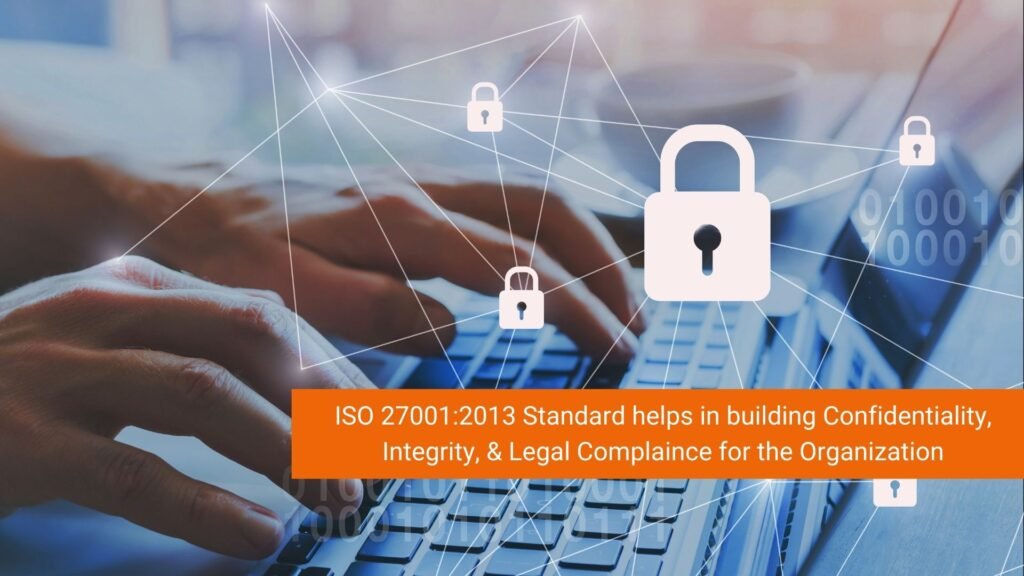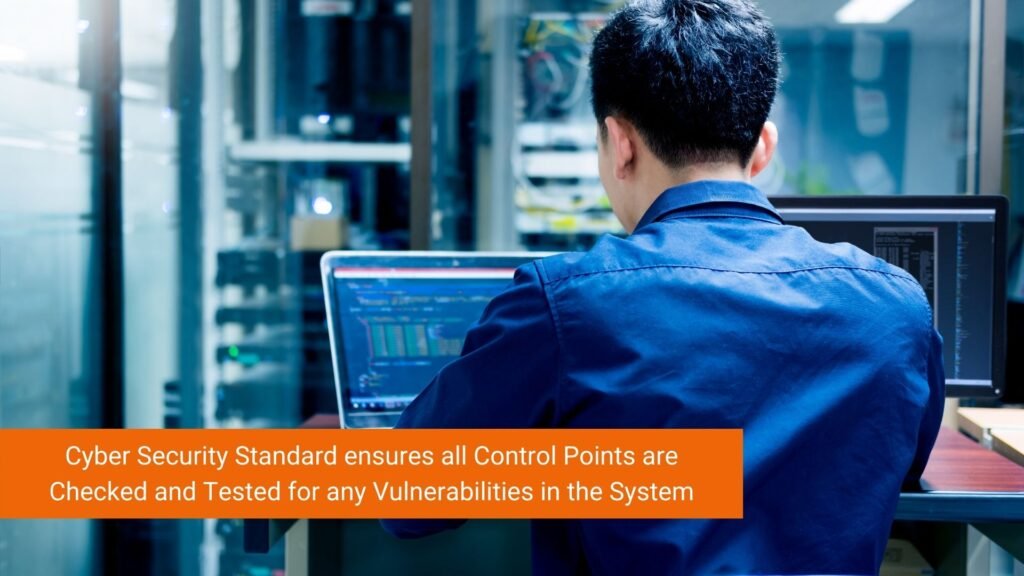Cyber Security is a prime area of focus for every organization in the modern world. The financial losses due to a cyber-attack are significantly high and loss of reputation for companies.
Hence businesses are keen on implementing safety nets such as ISO 27001:2013 Certification to ensure the Organization’s IT ecosystem is robust and risk-free to any external attacks.
What is ISO 27001:2013 Certification?
ISO 27001:2013 is a Certification for IT Security in an organization that is compliant with ISO Certification Standard Guidelines and policies.
The Cyber Security Standard provides a framework for Information Security Management System (ISMS) to safeguard organizational operations from cyber-attacks.
ISO 27001:2013 Certification – Key Highlights
It is an essential standard for every organization to build confidentiality, integrity, and legal compliance and gain customer trust.

ISO 27001:2013 Standard helps in protecting the brand assets, secure information, employee details, other strategic documents, and project files stored in the company database.
Plan-Do-Check-Act Approach
The Standard follows a Plan-Do-Check-Act approach and the ISMS System will act as the control system for controlling, monitoring, maintaining the organization’s data security.
The ISMS policies have action items to cover the organization during the instance of a cybercrime, server hacks, external damages -war, fire, theft, and more.
Why is Cyber Security Standard Important for Organization?
ISO 27001:2013 is a Standard that is compatible with ISO 9001 Certification and an ideal standard to be combined as an integrated management standard for organizations intending to get both certifications.
Also, ISO 27001:2013 Certification guidelines are applied across all technology systems and service providers.
It is completely independent of any IT platform. The flexibility of the IT Security Standard makes it a most preferred ISO Certification.
Cyber Security Standard and Risk Management
The Cybersecurity Standard enables the organization to test whether all their support systems and operations are compliant with the best practices of IT Security.
Also, it provides a policy manual and corrective action to ensure the company information is secured.
The Information Security Management System has a risk assessment module and policies to assess the vulnerabilities and take corrective actions.
To know more about Cyber Security Best Practices, read:
Steps in ISO 27001:2013 Certification Process in UAE
For an organization to get ISO 27001:2013 Certification Process in UAE, the following broad steps are to be followed.
For a successful implementation of the Information Security Management System and getting ready for the ISO 27001:2013 Certification, these steps will be handy.
1. Awareness about ISO 27001:2013 Certification Standard
The organization’s awareness about ISO 27001:2013 Standard policies, frameworks are important.
Also, finalizing the organization’s scope and objectives to be achieved from implementing the Certification is essential.
Having a clear understanding of the Cyber Security Standards, the Certification Process, and the business benefits will help in speeding up the process of Certification.
2. Get Assistance of an ISO Consultant
For specific ISO Standard such as ISO 27001:2013, getting assistance from an expert ISO Consultant is beneficial.
It requires significant experience with IT systems and processes to successfully identify the risk and take required corrective actions.
3. Top Management Support
For the success of ISO Certification, support from the Top Management is essential. There could be changes required in the existing IT systems to meet the ISO 27001:2013 Certification requirements.
An organization must invest in the latest technology to successfully mitigate any risk of cyber-attacks. The management Support for such initiatives is why some ISO Certification programs are a success.
4. Conduct Gap Analysis
The ISO Consultant along with the IT team of the organization conducts Gap Analysis to check the existing IT systems and their process capabilities to shield a cyber-attack.

All control points are assessed and Tested for any vulnerability in the system. The ITSM Checklist is used to check and update the progress and the required action items.
5. Identify Risk and Take Corrective Action
Risk Assessment is a critical component of the ITSM System. Cyber Attacks cost huge financial losses to organizations and also loss of reputation.
Hence the risk assessment and management is an important focus area for ISO 27001:2013 Standard.
6. Conduct Training for Employees
Onboarding, the employees with training materials and specification of ISO 27001:2013 Certification is a critical step. The success of any ISO Certification Process is the support from the employees.
Hence training employees with the right supporting documents and policy manuals helps them to effectively monitor, manage, and take action in the organization.
7. Prepare the ISMS Policy Manual
The Information Security Management System framework requires the preparation of Policy Manuals that are in line with the ISO 27001:2013 Standards.
All the corrective actions, control checkpoints, testing feedbacks, and associated comments must be mentioned in the policy document.
The Policy Manual will act as a central information repository for the organization in case of any sudden action required.
The policy Manual help in taking the right actions and eliminate risks of cyberattacks in an organization.
8. Policy Manual Review and Updates
The Policy Manual must be reviewed periodically and check for its compliance with the Cyber Security Standard.
The scope of the ISMS System, risk assessment policies, access controls, etc., must be reviewed and checked for non-conformity.
The updates to the policy manual help the organization to benefit maximum out of the ISO Certification System implementation and reduce the risk of any Cyber-Attacks.
9. Conduct Review Meetings and Measure the Progress
The success of Information Security Management System implementation depends on a lot of factors. The Quality Manual preparation has a significant role in the success of an ISMS System.
Monitoring, and measuring the progress of the Information Security Management System through frequent review meetings is helpful.
10. Internal Audit by the ISO Consultants
Now once the Information Security Management System is up and running, the IT team with the support of the ISO Consultant must mandatorily perform the internal audit.
It will test the ISMS System and ensures it complies with ISO 27001:2013 Standard. Following the guidelines of ISO 27001:2013 will enable the organization to be audited by the Certification body and issue the Certification.
11. Schedule for External Audit – ISO Certification Body
The ISO Certification Body will conduct an Audit to check the compliance.
Depending on the scope, the complexity of IT processes, and technology requirements, the ISO Certification Body will charge a fee for conducting the Audit and issue the Certification.
To know more about Cyber Security Certification in UAE, talk to our expert ISO Consultants right away!
Contact Us: Aurion ISO Consultants



